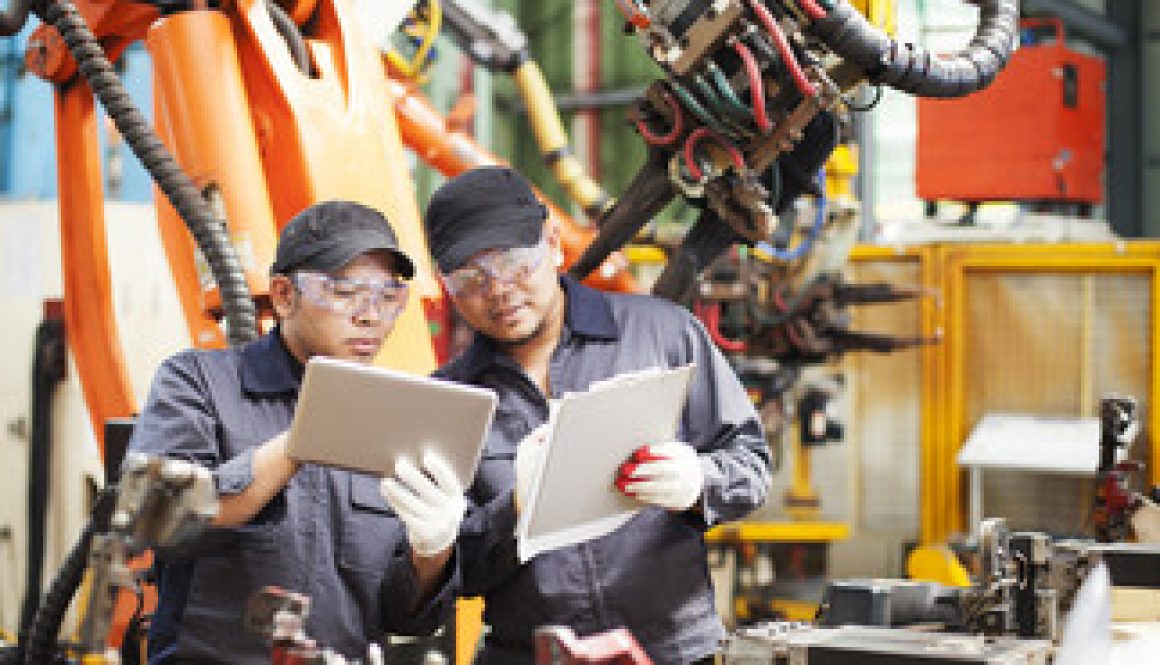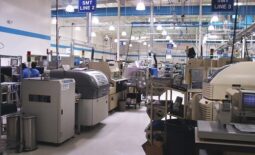Maquiladora plants Move Towards Advanced Manufacturing
Skilled Human Resources are Critical to the Growth of Mexico’s Maquiladora Plants.
Historically Mexico’s maquiladora plants have operated as factories that have been involved in the assembly of foreign-supplied and produced inputs into finished goods that were subsequently shipped to foreign consumers. Although there is room for improvement, Mexico is increasingly becoming a locale for advanced manufacturing. Mexican maquiladora plants now produce advanced manufactured items for a variety of industries. Included among them are automotive, aerospace, the food industry, mechatronics, industrial robotics, and plastics.
Because of the substantial expansion and increasing complexity of Mexican industry, the nation is becoming viewed worldwide as a supplier of advanced products. In 2015, in excess of US fifteen billion dollars’ worth of sophisticated goods had Mexico as their producer. Products manufactured in Mexico that are in this category include advanced electronics, biotechnological items, medical devices, optical components, mechanical goods, and advanced items for the aerospace and aviation industry.
Over the last three decades, Mexico has changed from what was an essentially closed and government-controlled economy to be one of the world’s most open today. During this period, Mexico’s maquiladora plants have played a key role in making the country the fourth most prolific exporter in the world following only Germany, Japan and South Korea. Mexico now has one of the most highly developed and sophisticated manufacturing sectors in Latin America.
One of the most challenging issues facing Mexico’s maquiladora plants today is adequately educating the nation’s labor pool to expand its capacity to meet the needs of positions in advanced industries. A key way by which this is done is by forging a solid linkage between business and educational institutions. Mexico has been diligent in these activities. Among the organizations working to fortify academics and business connections are the National Council of Science and Technology (Conacyt), the Ministry of Finance and Public Credit (SCHP), the Secretariat of Public Education (SEP), and the Ministry of Economy (SE). As of now in Mexico, there are sixty-three engineering industry-related majors being given by Mexican universities and technical schools. These have been designed to meet the demands of Mexico’s maquiladora plants. Furthermore, the country has a Center for Advanced Technology (CIATEQ) whose main installations can be found in the state of Queretaro. CIATEQ represents a collection of Centers that focus on advanced manufacturing that, in addition to its central location, is found in eight states in the Republic of Mexico. CIATEQ’s offerings are divided into several of important areas. Among them are:
- Plastics and advanced materials
- IT, Electronics and Control
- Virtual Engineering and manufacturing
- Engineering and construction of plants
- Measurement systems
- Mechanical systems
The organization also offers laboratory services in the areas of:
- Metrology
- Destructive and non-destructive testing
- Characterization of plastics and materials
Also, CIATEQ offers advanced degrees in complex manufacturing.
Automotive Mexican maquiladora plants will also require more highly-trained workers. Eduardo Solis, the executive director of the Mexican Association for the Automotive Industry (AMIA), asserts that Mexico will have to educate more skilled workers to meet the needs of an industry which is constantly innovating and improving the quality of its output. He suggests that companies not only to view Mexico as a source of inexpensive labor but also as a source of individuals that have the capacity to rise to the challenges that come with a complex industrial sector.
One technology-dense industry that is leading the way in steadily establishing a strong presence in Mexico is the aerospace and aviation sector. Just 13 ago, there were only 100 US and European companies manufacturing in this sector. Today that number has become a significant 330. In order to expand further into the future, however, aerospace Mexican maquiladora plants will need a supply of trained workers in areas such as forging, CNC machining, casting, metrology heat treating and other highly skilled positions.
A state in Mexico that has seen a visible rate of advanced manufacturing expansion in the last several years is Jalisco. In the last 5 years, the entity has registered an expansion of over six percent, which includes firms in the metal mechanics, aerospace, automotive, software, and robotics industries. As a measure of overall economic growth, the state is position in fourth place in the country behind Monterrey, Mexico City, and Queretaro. According to Francisco Castaneda, director of the robotics cluster of Jalisco, it is necessary that labor is trained sufficiently to take advantage of job opportunities that are now appearing. According to Castaneda, a deficiency of skilled labor will impede not only the Jalisco’s economic expansion, but also that of the Mexico as a whole.




